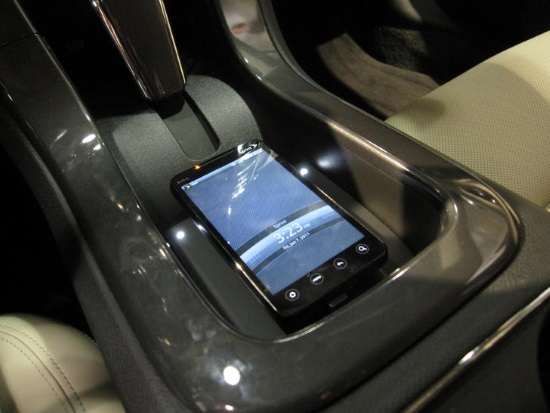SiC power modules
Research reported in the Japanese Journal of Applied Physics by researchers at Mitsubishi Electric describes the development of a new power module made from a SiC MOSFET and a SiC Schottky barrier diode. The team successfully tested the module in a train traction inverter – a device used to convert the direct current from the power source to three-phase alternating current suitable for driving the propulsion motors – with promising results.
Wireless charging in cars
A new study from Juniper Research has found that wireless charging is poised to change the way consumers interact with their cars, with an estimated 50 million vehicles offering built-in wireless device charging by 2020, compared with only 4 million this year. The new research, Wireless Charging: Opportunities, Applications & Standards 2015-2020, found that the technology will enable a range of new in-vehicle services, such as on-board audio streaming, automatic cockpit drill customization and context-specific notification filtering, made possible through the data exchange and constant power supply.

Several manufacturers have begun to provide solutions that cater for two main specifications: Qi; and A4WP/PMA.
This will also allow automakers to provide software-based services merely through streaming notifications from phone to dashboard, rather than needing to keep on-board firmware and hardware updated. With no established standard for wireless charging, manufacturers have been hesitant to adopt the technology for fear of buying into a system that will soon be obsolete. As a result, several manufacturers have begun to provide solutions that cater for two main specifications: Qi; and A4WP/PMA. These de-facto solutions are helping to overcome compatibility problems, but as they require more complex components than those geared to a single specification it will keep prices relatively high. 'For wireless charging to truly succeed, carriers and phone retailers need to provide consumers with an option for wireless chargers supplied with new devices,’ remarked research author James Moar. ‘The technology will not take off if it remains a $30+ additional purchase. This is why the automotive market is so important; if the technology is provided as standard in cars, consumers can appreciate the benefits without feeling like it’s a risky or unnecessary additional purchase.’
Advertisement





